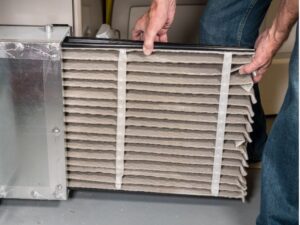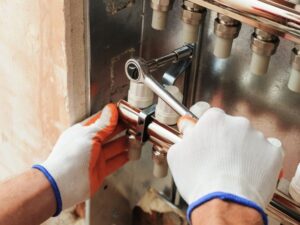How to Care for Your Home’s Heating System This Winter
Chilly winter weather events can stress your home’s heating equipment, but even normal wear and tear can reduce your system’s energy efficiency. A comprehensive approach to HVAC care is important for ensuring that your family will be comfortable in mild or severe temperature conditions. Additionally, careful attention to your system can also minimize your energy costs, enabling you to save for special activities with family members. Georgia is noted for the fact that approximately 30 percent of average household energy costs are attributed to heating, 11 percent less than the national average. The following actions may help you to improve these statistics even more as you care for your home’s heating equipment.
Schedule System Maintenance
It’s advisable to have a heating tune-up completed during the fall months to ensure that your equipment is ready for cold weather. This provides time for you to have any repairs made or replacement parts ordered based on your technician’s recommendations. However, many consumers aren’t initially aware of the need for HVAC maintenance until a repair issue occurs or an unexpectedly high energy bill arrives. It’s not too late to schedule HVAC care to ensure your system is operating at its optimum.
Change Your Filter Regularly
Because an air filter is normally out of sight, it’s easy to forget about it. Dirty filters can increase energy usage by up to 15 percent, and they can cause a variety of system problems, including overheating, unusual cycling, or even carbon monoxide problems. One of the first issues to check if your system malfunctions is the filter. It’s wise to be proactive by checking your filter at least once per month to ensure that dirt isn’t creating an air restriction. A clean filter at the beginning of the heating season can get you off to a good start, and prompt changes during the following months will help you to keep your equipment operating correctly.
Make the Most of Your Programmable Thermostat
Although many homes have programmable thermostats, many homeowners are unaware of how to make the most of these simple but helpful tools. By using your schedule to make targeted setting changes in the system programming, you can reduce heating activity during times when household activities are minimal. A waking setpoint of 68 degrees is recommended, and a drop of 8 degrees for sleeping and daytime periods is ideal for maximizing your energy savings. You can select programmable units that coordinate with your home’s Wi-Fi for even more precise management of your heating activity.
Act Promptly if Problems Arise
Unusual behavior from your heating system should be a serious concern. According to the National Fire Protection Association, one of every six home fires results from heating equipment, making attention to problems a significant safety need. Some problems with heating equipment can also affect indoor air quality via carbon monoxide emissions, making prompt attention to malfunctions a serious matter.
If you do experience any concerns, Ful-Bro Heating and Air Conditioning is available to assist with prompt HVAC care as needed. We can schedule system maintenance to ensure that your equipment is operating safely and efficiently. We are also available to install carbon monoxide alarms if you are concerned with winter safety. Call our office to discuss your needs.
You May Also Like

Can I Fix My Furnace in Tucker, GA, to Save Money?
Can tackling furnace repairs yourself actually save money, or will DIY efforts leave you out in the cold with an even bigger… Continue Reading Can I Fix My Furnace in Tucker, GA, to Save Money?…

It’s Not Too Late to Schedule a Furnace Tuneup in Chamblee, GA
The frost creeps across windowpanes as Chamblee, GA, residents reach for their thermostats, expecting instant warmth. Yet many homeowners discover their furnaces… Continue Reading It’s Not Too Late to Schedule a Furnace Tuneup in Chamblee, GA…

Need a Heat Pump Repair in Dunwoody, GA, Before Winter?
Your heat pump is critical to keeping your house comfortable. But if your system hasn’t been inspected or repaired lately, you might… Continue Reading Need a Heat Pump Repair in Dunwoody, GA, Before Winter?…


